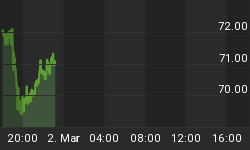Due to the expected slowing global economy, stock market turmoil and the growing headwinds from rising interest rates, some analysts are holding out hope that the Fed might slow the pace of further hikes—even if this goes against the consensus.
It is widely anticipated that the Fed will hike interest rates again this month, which would be the fourth this year, with Fed members noting during a late September meeting of the Federal Open Market Committee that “participants generally anticipated that further gradual increases in the target range for the federal funds rate would most likely be consistent with a sustained economic expansion, strong labor market conditions, and inflation near 2 percent over the medium term”.
Looking ahead to 2019, Fed officials expect at least three rate hikes will be necessary, and one more in 2020. Fed officials expect the key rate to rise to 2.4 percent at the end of the year, 3.1 percent at the end of 2019 and 3.4 percent at the end of 2020, according to their median estimate.
The Fed’s current take on the economy is that GDP growth will hit 3.1 percent for the year, but in the long-term, that growth is expected to slow to 2 percent, and then further after 2021. With regard to unemployment, the Fed expects next year to see it at 3.5-percent, the lowest it’s been at any point since 1969.
Not everyone agrees, though, that Fed won’t change its mind.
The market puts low odds on any hikes in that period. But with developing signs of pockets of weakness in the economy, the recent turmoil on Wall Street and the ongoing U.S.-China administration trade war posing a risk to the U.S. economy, perhaps the Fed will adopt a path of slowing rate hikes.
Many analysts expect the economy to weaken next year, in part from the effects of the conflicts Trump has pursued with China, Canada, Europe and other trading partners.
And because the financial markets themselves are already restraining themselves, the Fed won’t have to work as hard to push up rates. The Dow, after all, just had its worst week last week (since mid-March), and it’s fallen three out of the past four weeks.
Related: France Pledges Moves To Prevent $1B Economic Catastrophe
Neil Dutta, head of economics at Renaissance Macro Research, told Bloomberg that it’s not completely out of the question to skip a hike this month, citing inflation pressures and increasing market volatility.
“The consensus overwhelmingly expects a rate hike next week,” Dutta said. “This conviction feels a bit too strong for our liking. We’d be buying the front end of the yield curve heading into this meeting.”
Goldman Sachs expects the Fed to raise interest rates this month, but said the probability of a follow-up move in the first quarter of next year has fallen to slightly below 50 percent.
But this bet against the economy has polarized analysts.
Jonathan Millar, senior economist at Barclays, cited by MarketWatch, said he didn’t think the Fed had “changed its fundamental approach”.
“We suspect there will be more substantial declines in the unemployment rate” than the Fed has forecast,” he said.
While Goldman Sach’s Jan Hatzius questions the probability of follow-up rate hikes in the first quarter of next year, it doesn’t agree that we will see less than one full rate hike in 2019. That’s because the Goldman view is that the economy will still be on a growth path and there is little likelihood of a recession.
More Top Reads From Safehaven.com
















